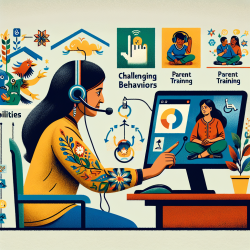Empowering Practitioners: Insights from Neuroscience to Transform Online Therapy

The intersection of neuroscience and education has unveiled new horizons for enhancing learning experiences and outcomes. The study "Mapping Neuroscience in the Field of Education through a Bibliometric Analysis" provides invaluable insights that can be instrumental for practitioners in online therapy. Here’s how you can leverage these findings to improve your practice and encourage further research.
Understanding Core Intellectual Themes
The research identifies four core intellectual themes in neuroscience in the field of education (NIE):
- Children and Cognitive Neuroscience: Investigating cognitive functions and developmental milestones in children.
- Students and Medical Education: Incorporating neuroscience into medical curricula to enhance learning and professional competence.
- Emotion and Empathy: Understanding the neural mechanisms behind emotions and empathy to improve therapeutic interventions.
- Education and Brain: Exploring how educational practices can be optimized by understanding brain functions.
Applying Research to Practice
Practitioners can implement these themes in various ways:
- Personalized Therapy Plans: Utilize cognitive neuroscience findings to tailor therapy plans that align with the cognitive development stages of children.
- Curriculum Integration: Incorporate neuroscience principles into training programs for therapists to enhance their understanding and application of brain-based strategies.
- Empathy Training: Develop programs that focus on enhancing empathy in therapists, which can improve patient outcomes and therapeutic relationships.
- Evidence-Based Interventions: Use brain research to inform and validate the effectiveness of different therapeutic interventions.
Encouraging Further Research
The study highlights the importance of ongoing research in NIE. Practitioners are encouraged to:
- Stay Updated: Regularly review new research to stay informed about the latest developments and best practices.
- Collaborate: Engage in interdisciplinary research to explore new therapeutic approaches and validate existing ones.
- Contribute: Conduct and publish your own research to contribute to the growing body of knowledge in NIE.
Conclusion
Integrating the findings from neuroscience into online therapy can significantly enhance the effectiveness of therapeutic interventions. By staying informed and engaged with ongoing research, practitioners can continue to improve their skills and provide better outcomes for their clients.To read the original research paper, please follow this link:
Mapping Neuroscience in the Field of Education through a Bibliometric Analysis.
Citation: Xu, H., Cheng, X., Wang, T., Wu, S., & Xiong, Y. (2022). Mapping neuroscience in the field of education through a bibliometric analysis. Brain Sciences, 12(11), 1454. https://doi.org/10.3390/brainsci12111454










